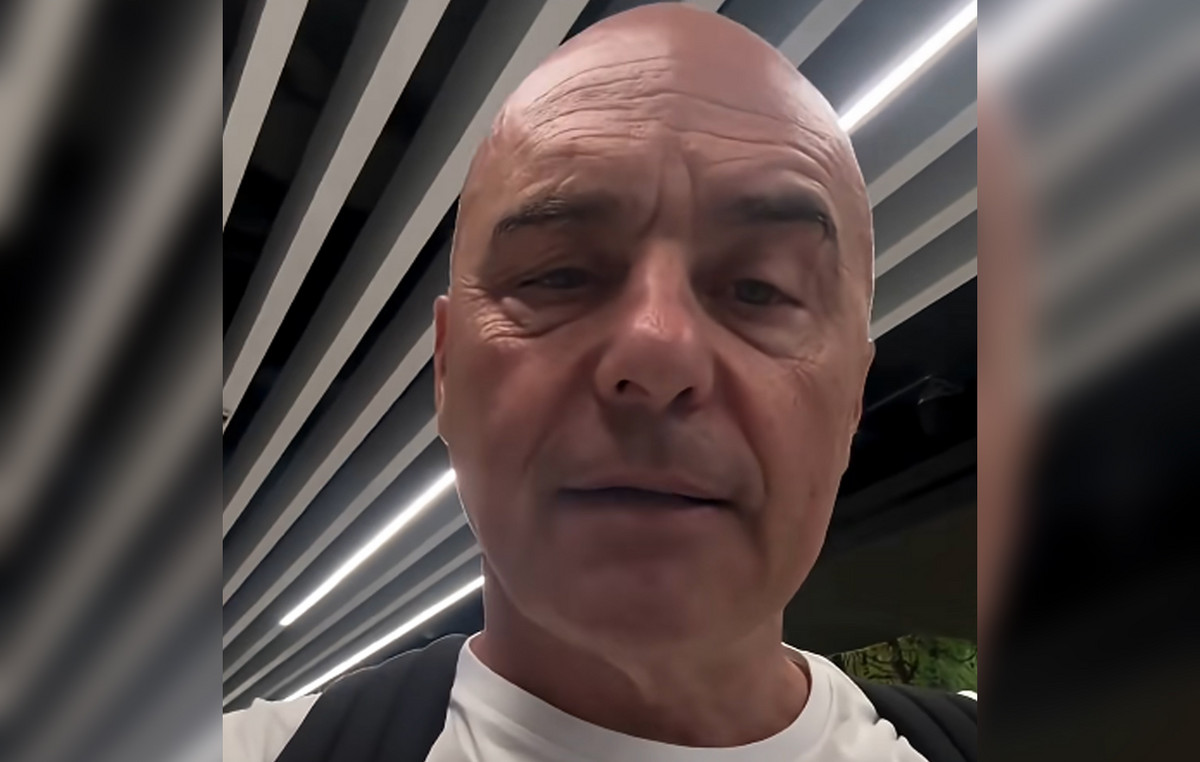Journalist Schirlei Alves was convicted by judge Andrea Cristina Rodrigues Studer, of the 5th Criminal Court of Florianópolis, in two actions for defamation against a judge and a prosecutor who worked on the Mari Ferrer case.
The judge imposed a sentence of 6 months of open detention, in each action, and fines totaling R$400,000 against journalist Schirlei Alves, who wrote reports about the case.
Lawyer Rafael Fagundes, who defends the journalist, stated in a statement that “the defense is unhappy with the sentence”. According to Fagundes, the judge’s decision “ignored the reality of the facts and the evidence in the case, resulting in a blatantly arbitrary and illegal decision”.
The proceedings took place in secrecy in the Santa Catarina Courts. The sentences, published on September 27, were obtained by the newspaper “O Estado de S. Paulo”. According to the documents, prosecutor Thiago Carriço de Oliveira and judge Rudson Marcos accused the journalist of defamation and insult, after a report about the Mari Ferrer case was published on the website “The Intercept Brasil” in 2020.
The article revealed images from the hearing of the case that influencer Mariana Ferrer filed against a businessman on charges of rape. The recording showed that lawyer Cláudio Gastão da Rosa Filho, who defended the accused, insulted the young woman, showed sensual photos taken by her before the alleged crime, without any relation to the episode, and mentioned “gynecological” poses. In the text of the report, the website used the expression “culpable rape”.
Judge Andrea Cristina Rodrigues Studer considered that the report had the “clear intention” of attributing the term to the prosecutor. The expression had not been used in the process and, according to the judge, the text implied that Carriço de Oliveira had requested the businessman’s acquittal based on this thesis.
Rodrigues Studer also recorded that the report suggested that the judge “would have accepted the accused’s request for acquittal, agreeing with the thesis presented by the prosecutor ‘unintentional rape’”. In the sentence, the judge stated that the journalist had “the intention to propagate, disseminate its material, since with such a title and statement, completely outside the legal scope, it would be able to attract more attention and generate more access to the text”.
On October 6, 2020, the date on which the report was published, the website “The Intercept Brasil” registered on the portal that it had never written that the expression “was in the file”. “We, the editors of the report, used the expression “culpable rape” in quotation marks in the title of the article, precisely to show the reader that we were facing a new idea, created based on the prosecutor’s thesis – and accepted by the judge”, he stated. the website at the time.
“We used quotation marks to signal the figurative spirit, but part of the audience interpreted it as a literal use of the expression, as if we had copied and pasted it from the case records. We were wrong to not make it even clearer in the body of the text that the expression “culpable rape” was not in the case file, but was an interpretation of what the prosecutor defended in his closing arguments.”
Judge Andrea Cristina Rodrigues Studer did not accept the defense’s arguments in the case and stated that the use of the expression “overcame the barrier of narrative and journalistic criticism”. The judge convicted Schirlei Alves of defamation against a public official, due to his duties, and through the means that facilitated the publicizing of the case. The judge acquitted the journalist of the crime of insult for using the expression “legal excrescence” in the text.
“I grant the defendant [jornalista] the right to appeal freely, given the type of reprimand applied, as well as because he responded to the process freely”, stated the judge.
When stipulating a fine of R$400,000 (R$200,000 in each case) the judge stated that the crime was “committed with the aim of making a profit, with the access of the report”. The judge noted, in the sentence, that she also considered the “economic condition of the victim, as well as the extent of the shock suffered and the profit obtained from the publication of the articles”.
Schirlei Alves states that “the feeling is one of injustice”. “I am being punished for having done my job as a journalist, for having revealed to the public an absurd amount of power committed by the judiciary,” she said. “This decision seems to me to be an attempt to intimidate, to silence not only myself, but other journalists who cover the judiciary and carry out investigative, supervisory and reporting journalism.”
The journalist’s defense declared that “the sentence committed a series of primary legal errors, artificially aggravating the conviction and contradicting all Brazilian jurisprudence on the subject”. “Unable to hide corporatist concerns, this sentence could serve as a threat against those who dare to denounce abuses possibly committed by the Judiciary,” said lawyer Rafael Fagundes.
Judge Rudson Marcos stated that he does not comment on “sentences of other colleagues, and the case in question is under judicial secrecy”. The judge noted, however, that “the topic deserves considerable reflection” and said it was “understandable that the public considers a judicial decision against a journalist as the result of censorship and corporatism”.
“In this case, however, obviously the defamation is not in the disclosure of the facts, but in the lies and distortions that guided the aforementioned report,” he stated. “The matter contains falsehoods certified by forensics and other evidence. It says that the defendant in the criminal case was acquitted due to an “unprecedented theory” of culpable rape, suggests an intention to help the defense and is supported by a maliciously edited video. What was identified in the report was the objective of degrading the technical performance of the prosecutor and judge, using fake news.”
Asked about the value of the fine imposed on the journalist, Rudson Marcos declared that the “loss” he suffered “with the lies disclosed in the report is not financially measurable”. “I will continue to suffer harm over the years, as my name will forever be associated with an ‘acquittal for culpable rape’ that never occurred. Just look at the internet,” he pointed out.
When contacted, judge Andrea Cristina Rodrigues Studer and prosecutor Thiago Carriço de Oliveira did not comment.
Judge in the Mari Ferrer case was warned by the CNJ
The National Council of Justice (CNJ) decided on Tuesday (14) to apply to judge Rudson Marcos, former head of the 3rd Criminal Court of Florianópolis, a warning sentence – the lightest punishment provided for in the Organic Law of the Judiciary. The magistrate was the conductor of hearings in which lawyer Cláudio Fastão da Rosa Filho, who represents businessman André Camargo Aranha, offended influencer Mari Ferrer.
Before the CNJ decided to investigate the case, the local Internal Affairs Department only ‘privately warned’ the magistrate about the need ‘to proceed more energetically in the hearings’, preventing abuse of the right to defense or accusation.
For the Council, the judge passively watched the lawyer, without adopting any caution or censure for his ‘jocular statements’ and rude questions. Rubson Marcos even claimed that he made 37 interventions at the hearings, but the rapporteur pointed out that there were 23 interventions – 11 to the victim, eight to the lawyer and four to both – and most of them did not concern the victim’s treatment.
Understand the Mari Ferrer case
Influencer Mariana Ferrer accused businessman André de Camargo Aranha of raping her in December 2018, when she was 21 years old. In one of the hearings of the case, in the Santa Catarina Court, the defense lawyer, Cláudio Gastão da Rosa Filho, showed what he called “gynecological” photos of the young woman and stated that he would “never have a daughter” of her “level”. .
With the embarrassment, Mariana Ferrer was moved to tears, and the lawyer continued attacking. “There’s no point in coming with your disguised, fake crying and all that crocodile talk,” she said. “Your Excellency, I am begging for respect, not even the accused are treated the way I am being treated. For the love of God, people, what is this?”, appealed the young woman.
The judge in the case, Rudson Marcos, asked the lawyer to maintain a “good level”. The content of the hearing was revealed by the website “The Intercept Brasil”. Businessman André de Camargo Aranha was acquitted.
Case led to the issuance of the Mari Ferrer Law
The case, which occurred in 2020, led to the enactment of the Mari Ferrer Law, in November 2021. The rule represses the embarrassment of victims and witnesses in sexual crimes trials. The judge in the case will be responsible for complying with the measure.
Report records arrests of journalists in Brazil
An annual report by the National Federation of Journalists (Fenaj), published in January this year, recorded three arrests of journalists last year. Two reporters were detained by police officers armed with rifles while awaiting a response to an interview request at the headquarters of a British mining company in Bahia.
According to the Fenaj document, another journalist was detained by the Military Police when he tried to investigate a complaint about a lack of doctors and supplies in a hospital in Piauí. In the third case, a photojournalist was detained while working in the Cracolândia region, in São Paulo, on allegations of disturbing public order.
Source: CNN Brasil
I’m James Harper, a highly experienced and accomplished news writer for World Stock Market. I have been writing in the Politics section of the website for over five years, providing readers with up-to-date and insightful information about current events in politics. My work is widely read and respected by many industry professionals as well as laymen.







